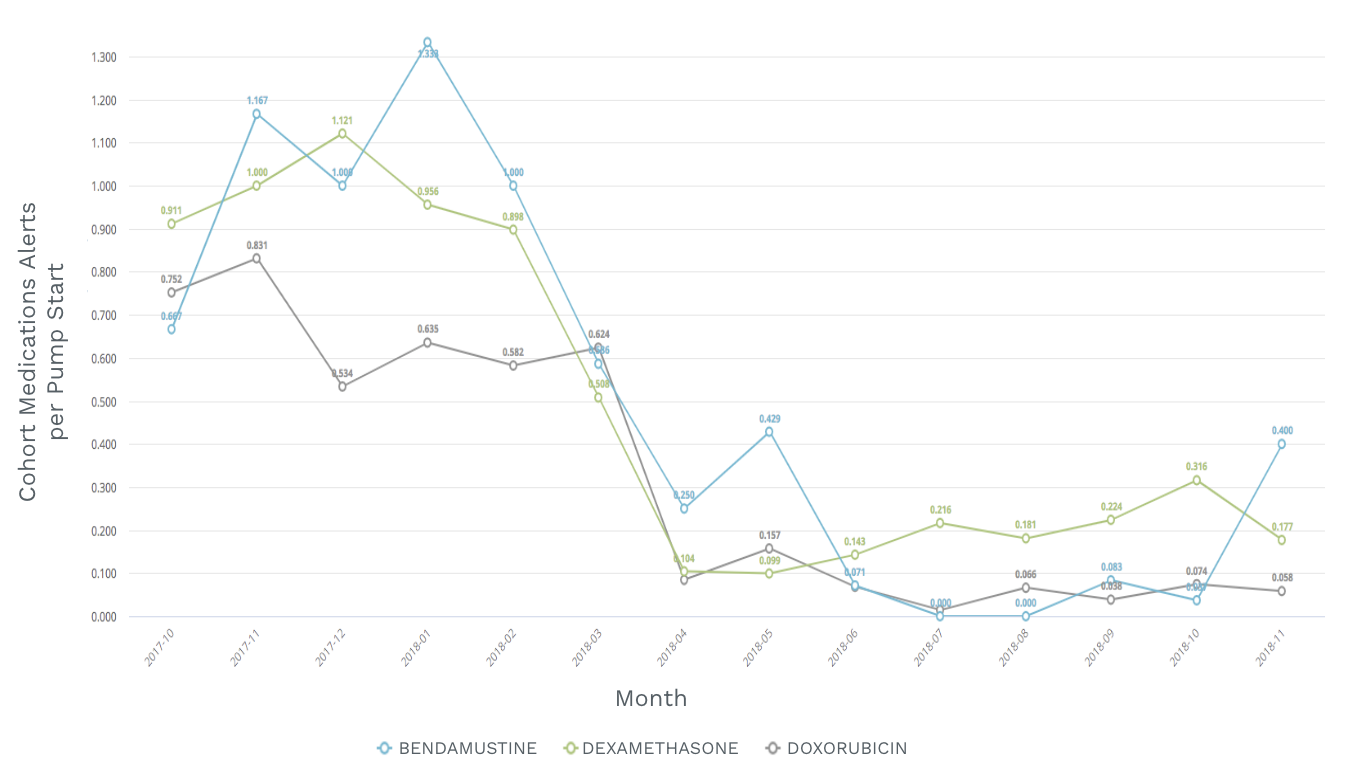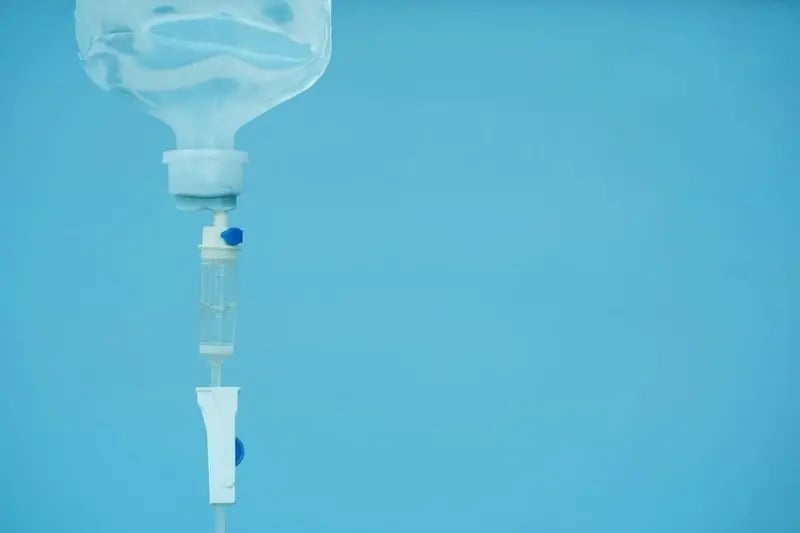
Med O.S.® for Infusion Safety Network Result
Optimizing Chemotherapy Decision Support to Reduce Bedside Interruptions by 85%
Study Overview
Situation
A large adult health system experienced a high number of high-rate infusion alerts for chemotherapy medications. They set a goal to better monitor and ultimately reduce clinically irrelevant alerts.
Business Case & Findings
Alert fatigue is an established driver of medication errors and nursing burnout. Bainbridge Health identified unusually high alert rates for chemotherapy medications at this institution, which created risk of patient harm.
Results
By optimizing clinical decision support to better align with real-world practice and the evidence-base, the health system decreased clinically irrelevant alerts for this cohort of chemotherapy medications by 85%.
Situation
A large adult health system faced a high number of infusion alerts for chemotherapy medications. These alerts, triggered when programmed doses exceeded preset alert thresholds, were intended to prevent medication errors. However, in oncology settings where weight-based dosing and regimen variability are common, frequent unnecessary alerts can lead to alert fatigue—a phenomenon whereby clinicians become desensitized to medication error warnings, thereby increasing the risk of serious adverse events.
With Bainbridge Health’s support, health system leadership recognized that chemotherapy and supportive care medications, particularly Bendamustine, Dexamethasone, and Doxorubicin, were generating a high volume of alerts exceeding 100% of their currently programmed limits. The health system sought to optimize alert thresholds to maintain patient safety while reducing excessive interruptions for clinicians.
Business Case
- Alert fatigue is an established driver of medication errors and nursing burnout. Numerous regulatory bodies and thought leaders (including the ECRI Institute and The Joint Commission) cite alert fatigue as one of the most prevalent causes of harm in hospitals.1,2
- Medication errors can lead to patient harm and over $8,000 of avoidable cost per event. Nursing interruptions are associated with a 16.1x greater risk of harm.3,4
- Pharmacy leadership further determined engaging Bainbridge Health would reduce the time investment from the Pharmacy and Medication Safety team to analyze data and truncate time to interventions.
Intervention & Impact
Bainbridge Health analyzed infusion data across the health system and identified three chemotherapy agents with disproportionately high alert rates:- Bendamustine – An alkylating agent used to treat leukemia and lymphoma.
- Dexamethasone – A corticosteroid used to manage chemotherapy-induced side effects and inflammation.
- Doxorubicin – An anthracycline chemotherapy widely used in solid and hematologic malignancies.
Bainbridge Health provided interventions to optimize clinical decision support alert thresholds for these medications, ensuring that clinically appropriate doses would not trigger unnecessary warnings while still maintaining critical safety limits. These changes aligned with industry best practices and peer hospital benchmarks, balancing patient safety with workflow efficiency for oncology clinicians.
After implementing Bainbridge Health’s interventions, this health system realized an 85% reduction in clinically irrelevant alerts. Bainbridge Health helped the health system improve clinical workflow, enhance medication safety, and support oncology teams in delivering uninterrupted, high-quality cancer care.
Reduction in Chemotherapy Alert Volume
This change significantly reduced clinician alert fatigue, allowing providers to focus on salient medication risks while maintaining the highest standards of patient safety.

Figure: Medication alert rate over time
Related Network Results

Bainbridge Health Helps a Five-Hospital System Reduce Clinically Irrelevant Alerts by 70%

Optimizing Clinical Resource Allocation: Creating Efficiency Through Streamlining Infusion Data Analysis

Building a Safer Infusion Culture: Increasing DERS Compliance From 34% to 90% Through Targeted Action
Ready to Harness the Full Potential of Your Infusion Data?
Disclaimer
This example is for information purposes only and should not be relied upon to make specific clinician decisions.
All clinical opportunities identified by Bainbridge Health were evidence-based according to supporting literature and network data. They were also made under the surveillance of the Bainbridge Health Clinical Solutions team, an interdisciplinary group of subject matter experts who provide guidance and oversight.
References
- The Joint Commission (TJC). Optimizing smart pump safety with DERS. TJC Sentinel Event Alert. 2021; 63.
- Institute for Safe Medication Practices (ISMP). Survey results: Smart pump data analytics. Acute Care ISMP Medication Safety Alert. 2018; 23(14).
- Institute of Medicine. Preventing medication errors. Washington, DC: The National Academies Press; 2007.
- Drews F, Markewitz B, Stoddard G, et al. Interruptions and the delivery of care in the intensive care unit. Human Factors. 2019; 61(4):564-576.